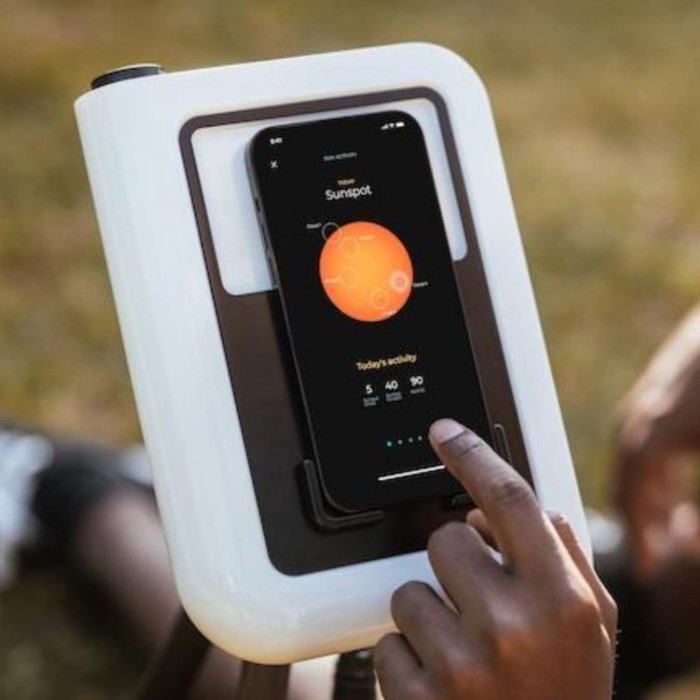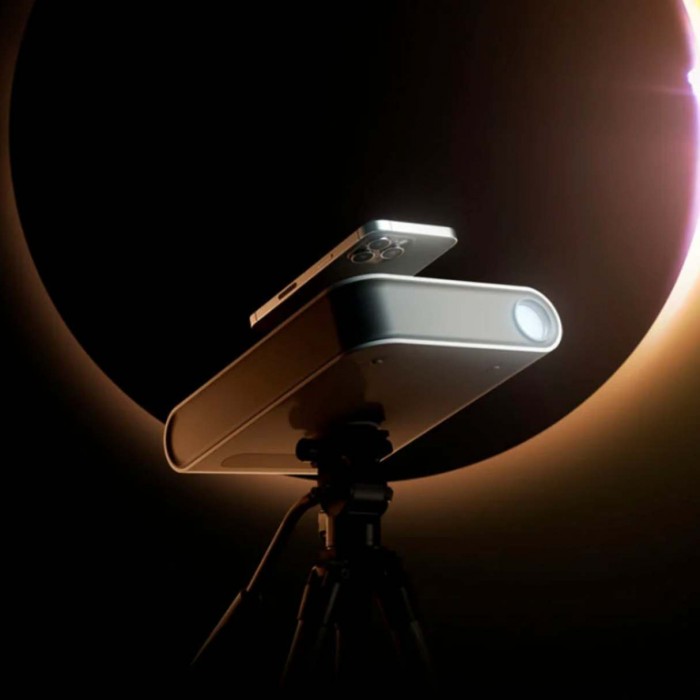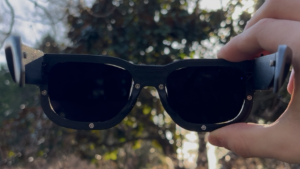No stranger to astronomical exploration, French startup Vaonis creates innovative tech to observe and capture the night sky. Its latest invention, Hestia, enables the user to turn their smartphone into a telescope, to enable them explore and photograph the universe.
Vaonis’s Hestia allows users to explore astronomy without complex setups or any required knowledge. ‘Hestia is the best first instrument for beginners or curious people who would love to discover and understand more about what lies above us,’ Vaonis says.
Hestia works with your smartphone, using no power source except that of the phone and a removable system of magnets. You simply place your phone on the ocular, aligning your device with a celestial object of your choice. With its patented six-lens optical design featuring a 30mm objective, and prisms that collect and focus the light directly into your smartphone's camera sensor, Hestia allows you to capture images of celestial objects like lunar craters, sunspots and stars at five times better sharpness and detail resolution than a smartphone alone.
The smartphone-powered telescope is best paired with Vaonis’s dedicated companion ‘Gravity’ app, which enhances observation using image-processing algorithms to combine and align multiple short-exposure images captured by a smartphone into a single high-quality photograph. The app uses an interactive sky map to help users find their way in the universe with lights to correctly align them with their target.
Hestia is also designed to work during the day, thanks to a dedicated solar filter. This is exciting news for those anticipating the total solar eclipse that will cross North America on 8 April 2024 (and which will not occur again until 2044), when the moon passes between the sun and Earth, completely blocking the face of the sun and darkening the sky as if it were dawn or dusk. (There will also be a total solar eclipse in northern Europe on 12 August 2026.) This ‘day mode’ feature will allow viewers of the eclipse to take a closer and safer look – and photograph it.
Vaonis is currently seeking funding for the Hestia project on Kickstarter, a global crowdfunding platform focused on creativity, with hopes to ship the first batch of telescopes before the April 2024 eclipse.
Read more
Photographs: Vaonis.








